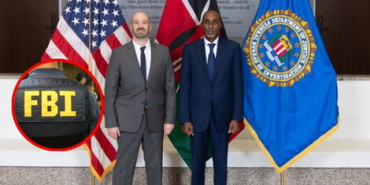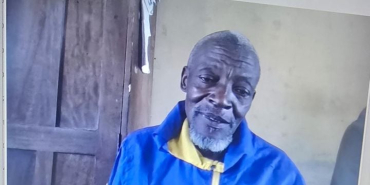Kenyan Man Wrongfully Imprisoned for 10 Years Takes Legal Action Against UK Police

A Kenyan man exonerated last year after spending over a decade in prison for the 2011 death of a British tourist, is suing the Metropolitan Police, alleging their actions contributed to his wrongful conviction.
Kololo's suit set for an initial hearing at the Central London County Court on Friday, centres on the police’s role in the investigation of an attack at a Kenyan island resort that resulted in the death of British publishing executive David Tebbutt and the abduction of his wife, Judith, who was later released after a ransom was paid. Kololo, now in his mid-40s, was the only individual prosecuted in connection with the crime and was initially sentenced to death.
His legal team contends that the conditions of his imprisonment were "inhumane." His conviction was overturned in 2023. Kololo argues that misleading evidence provided by the Metropolitan Police was instrumental in the trial's outcome, prompting his demand for compensation. Emails obtained by the legal charity Reprieve indicate that the UK Home Office approved the Metropolitan Police's involvement, even with knowledge of the potential for a death penalty.
Reprieve argues that this decision violates British policy against facilitating capital punishment. Internal communications reveal that while officials were aware of the possibility of a death sentence, they did not seek formal assurances from Kenyan authorities, citing Kenya's moratorium on executions as sufficient mitigation. Key to Kololo’s initial conviction was forensic evidence, particularly a footprint purportedly linking him to the crime scene.
His defence now argues that the Metropolitan Police had deemed this footprint inconclusive, a determination that was not disclosed during the original trial. Furthermore, a pair of shoes presented as evidence reportedly did not fit Kololo, who maintained he was barefoot at the time of the incident.
The original trial was also plagued by procedural irregularities. Kololo, who is illiterate, lacked legal representation and was compelled to navigate the complex proceedings in a language he did not fully understand.
He was required to cross-examine 20 witnesses, including former Detective Chief Inspector Neil Hibberd, whose testimony was critical to the conviction. A subsequent investigation concluded that Hibberd would have faced gross misconduct charges had he still been a serving officer; however, no action was taken due to his retirement. Kololo, who previously worked as a honey-gatherer and woodcutter, has expressed the profound impact of his imprisonment.
"Being sentenced to death was torture in itself," he stated through Reprieve, emphasizing the lasting effects on his health and ability to support his family.
Reprieve has urged the Metropolitan Police to accept responsibility for their role in Kololo’s conviction. "This case raises critical questions about the UK’s complicity in human rights violations abroad," stated Preetha Gopalan, Reprieve’s head of UK litigation.














Add new comment